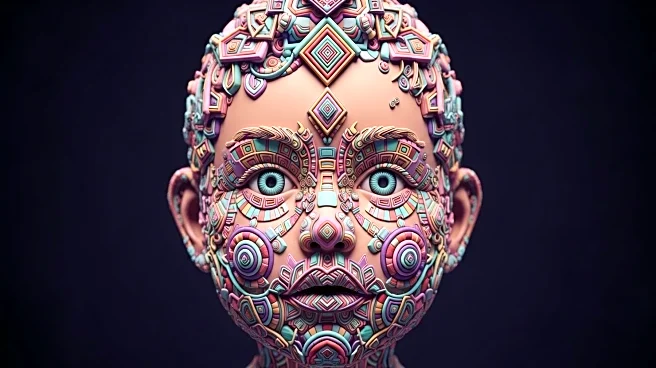What is the story about?
What's Happening?
A study conducted by Anglia Ruskin University has discovered that adults can recall more detailed childhood memories after experiencing a virtual 'enfacement illusion' that alters their perception to resemble a childlike version of their own face. Participants viewed a live, altered image of their face, creating a temporary sense of embodying their younger selves. This experience significantly enhanced access to early episodic memories compared to a control group. The findings suggest that altering body perception can unlock forgotten memories and could inform new approaches for memory rehabilitation and research into childhood amnesia.
Why It's Important?
The study's findings have potential implications for memory rehabilitation and the treatment of memory impairments. By demonstrating that changes in body perception can enhance memory recall, the research opens new avenues for developing techniques to access previously inaccessible memories. This could be particularly beneficial for individuals with memory impairments or those experiencing childhood amnesia. Additionally, the study contributes to the understanding of the interaction between bodily self-perception and memory, offering insights into the cognitive processes involved in memory recall.
What's Next?
Future research may explore the application of the 'enfacement illusion' technique in clinical settings to aid memory recall in individuals with memory impairments. Researchers may also investigate the broader implications of body perception on cognitive processes, potentially uncovering new methods for enhancing memory and cognitive function. The study's findings could lead to the development of interventions that utilize body perception to improve memory recall and cognitive health.
Beyond the Headlines
The study raises questions about the ethical implications of using virtual reality and body perception techniques in memory rehabilitation. As technology advances, discussions around the ethical use of such techniques in clinical settings will become increasingly important. Additionally, the research may influence cultural perceptions of memory and identity, highlighting the significance of body perception in shaping cognitive experiences.















